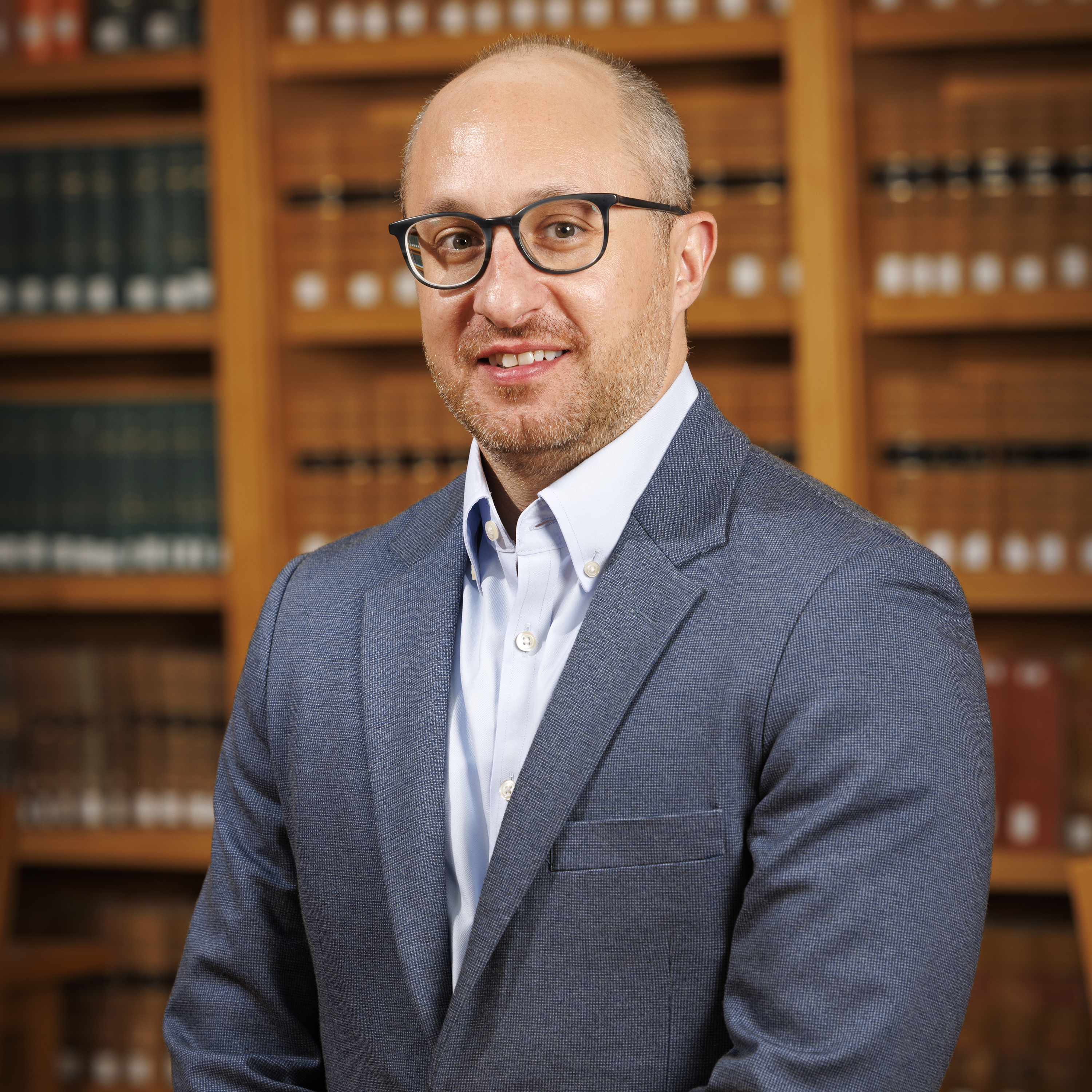Biography
I am an Assistant Professor of Law at the University of Nebraska, where I teach Contracts, Unfair Competition, and Remedies, as well as a fellow with the Stanford Law School Program in Law, Science and Technology. I hold a JD from Harvard Law School (2010, cum laude). Before my current appointment, I practiced at Ropes & Gray LLP in Boston and at two Rochester firms, with a year in between as a law clerk for Judge Richard Wesley of the U.S. Court of Appeals for the Second Circuit. While in full-time practice, I also served as a nonresident fellow at the Northwestern Pritzker School of Law. The combination of my computer science and legal training has drawn me toward technology-related issues in commercial law, which have been the focus of my practice and recent academic work.
My research focuses on the interaction between private law and technology. One major area of interest is how the common law responds to technological innovation and can be harnessed to complement the more particular statutory and regulatory schemes layered atop it. A second branch of my work explores how the tools of machine learning and artificial intelligence can be brought to bear on traditional legal questions. Through computational analysis of large bodies of case law, my research seeks to provide a more systematic view of our legal system and doctrines and to guide legal reforms and policy decisions. My work has appeared in leading journals including the Georgia Law Review, George Washington Law Review, Stanford Law & Policy Review, and the Administrative Law Review.
Courses
- Contracts
- Remedies
- Unfair Competition
- The Common Law in Modern Society
Articles
Section 230: A Juridical History, 28 STAN. TECH. L. REV. 1 (2025)
The Patterns of Digital Deception, 65 B.C. L. Rev. 2457 (2024)
LegalBench: A Collaboratively Built Benchmark for Measuring Legal Reasoning in Large Language Models, PROC. 37TH CONF. NEURAL INFO. PROCESSING SYS. (2023) (coauthored with Neel Guha et al.)
Privately Policing Dark Patterns, 57 GA. L. REV. 1633 (2023) (selected symposium)
The Internet Immunity Escape Hatch, 47 BYU L. REV. 1435 (2022)
Rebooting Internet Immunity, 89 GEO. WASH. L. REV. 347 (2021)
A Computational Analysis of Oral Argument in the Supreme Court, 28 CORNELL J.L. & PUB. POL’Y 449 (2019)
An Empirical Study of Obstacle Preemption in the Supreme Court, 89 NEB. L. REV. 682 (2011)
Calibrating Chevron for Preemption, 63 ADMIN. L. REV. 667 (2011)
Articles (Shorter Works)
Beyond Social Media Analogues, 99 NYU L. REV. ONLINE 109 (2024) (essay)
Journalism in the Age of Clickbait, 66 HOWARD L.J. 191 (2022) (book review)
Big Tech’s Tightening Grip on Internet Speech, 56 IND. L. REV. 101 (2022) (essay)
Toward Textual Internet Immunity, 33 STAN. L. & POL’Y REV. ONLINE 1 (2022) (essay)
An Interpretive Framework for Narrower Immunity Under Section 230 of the Communications Decency Act, 33 HARV. J.L. & PUB. POL’Y 863 (2010) (student note)
Chevron’s Sliding Scale in Wyeth v. Levine, 33 HARV. J.L. & PUB. POL’Y 1177 (2010) (case comment)
Books
THE LAW OF TORTS (Aspen Publishers 2d ed.) (coauthored with Richard A. Epstein)
(forthcoming 2025)
Book Chapters
Consumer Rights and Algorithms, in ELGAR CONCISE ENCYCLOPEDIA OF ARTIFICIAL INTELLIGENCE AND THE LAW (Ryan Abbott & Elizabeth Rothman eds., forthcoming 2024) (encyclopedia entry)
Section 230 and Social Media Immunity, in RESEARCH HANDBOOK ON SOCIAL MEDIA LAW (Marilyn Bromberg & Thaddeus Hoffmeister eds., forthcoming 2024) (book chapter)
Presentations
2025
Regulation of Algorithms Panel, Association of American Law Schools Annual Meeting, January 11, 2025
2024
The Patterns of Digital Deception, Central States Law Schools Association Annual Conference, Texas Tech University School of Law, September 6, 2024
The Patterns of Digital Deception, George Mason University Law & Economics Center Research Roundtable on Competition and Consumer Protection Issues Surrounding Information Flows, February 1, 2024
2023
Sixth Annual Junior Faculty Forum for Law and STEM, Stanford Law School, October 27, 2023 (selected but conflict prevented attendance)
Computational Tuning for Legal Corpora, 8th Annual Law & Corpus Linguistics Conference, BYU Law, October 13, 2023
Teaching Market Alternatives to Traditional Economic Analysis of Law, Business Law Workshop: Market Jurisprudence, SEALS Annual Meeting, July 27, 2023
Privately Policing Dark Patterns, Georgia Law Review Symposium on the Intersection of Law & Technology, March 24, 2023
Nebraska Governance and Technology Center Law & Technology Workshop, March 15, 2023
AALS Internet & Computer Law Section, New Voices in Internet & Computer Law, AALS Annual Meeting, January 5, 2023
2022
Privately Policing Dark Patterns, George Mason University Law & Economics Center Research Roundtable on Regulating Privacy, December 9, 2022
The Internet Immunity Escape Hatch, Yale Law School Information Society Project Technologies of Deception Conference, March 26, 2022
2021
Central States Law Schools Association Annual Conference, September 25, 2021
Nebraska Governance and Technology Center Law & Technology Workshop, July 28, 2021
Earlier
Gonzaga University School of Law Faculty Roundtable, September 24, 2020
Stanford Legal Research in Progress Workshop, Stanford Law School, May 5, 2020
GDPR Considerations in Higher Education, Upstate New York College Collaboration Security Summit, Roberts Wesleyan College, December 14, 2018
A Computational Analysis of Oral Argument in the Supreme Court, Conference on Empirical Legal Studies, University of Michigan Law School, November 9–10, 2018 (selected but conflict prevented attendance))
Junior Faculty Law and Technology Workshop, The Ohio State University Moritz College of Law, February 3, 2017
Awards
1L Professor of the Year (St. Thomas University, 2024)
Education
J.D., Harvard Law School (2010)
B.S., Houghton University (2006)
